Providing top-quality education to boys from Form 2 to Form 6, we draw on our long and proud tradition, as well as our dynamic and forward-thinking ethos.

Providing top-quality education to boys from Form 2 to Form 6, we draw on our long and proud tradition, as well as our dynamic and forward-thinking ethos.

Providing top-quality education to boys from Form 2 to Form 6, we draw on our long and proud tradition, as well as our dynamic and forward-thinking ethos.

Providing top-quality education to boys from Form 2 to Form 6, we draw on our long and proud tradition, as well as our dynamic and forward-thinking ethos.
Maritzburg College is one of the leading boys’ schools in KwaZulu-Natal and South Africa. We also hold our own internationally, having produced a Fulbright Scholar and several Rhodes scholars.
By nurturing the highest academic standards, the classroom environment at College endows every boy with the skills to grow intellectually, think independently, and interrogate ideas. These skills and attitudes last a lifetime, forming the foundation of fulfilling intellectual lives and successful careers.
The academic curriculum is complemented by a range of extra subjects and cultural clubs, allowing boys with academic prowess to pursue a range of disciplines, grow their potential, and expand their field of interest.
Among our alumni are university chancellors, judges, bishops, authors, and accomplished men who show proficiency across a growing list of industries.

At Maritzburg College, lessons within the classroom are enhanced by a collection of online learning tools. These resources are readily accessible to expand understanding and foster a culture of independent self-study.

Every boy’s learning style and rate of progress is unique. Academic support at College takes the form of a peer tutor system, free after-school support, remedial offerings, and learning concessions for boys with special requirements.

The teachers at College have a passion for their subjects that extends into their lives outside the school. Through their knowledge and experience, boys are given the unique advantage of professional insights and enthusiastic classroom environments.
Boys who attend Maritzburg College write the National Senior Certificate (NSC) exams. While there are some differences between the NSC and Independent Examination Board (IEB) exams, College boys are guaranteed a superior quality education in our well-resourced, professionally-run school.
Off the back of more than 150 years of teaching boys, our rigorous academic standards are achieved by:

Both NSC and IEB schools fall under the supervision of the national education authority, Umalusi, which keeps watch over the curricula in both state and private schools in South Africa.

Both systems complete the same core curriculum called the Curriculum Assessment Policy Statement. While the style of examining may differ from system to system, the curriculum being examined is the same.

Both the IEB and NSC are accredited by Umalusi as examining bodies. This ensures that the standards set are of an acceptable level and are consistent across the two systems.

There is no preference shown by university officials to matriculants from either state or IEB schools. Every Grade 12 pupil who qualifies for university entrance has an Admission Point Score based on their results which, together with the National Benchmark Test, determines university entrance.
Accounting focuses on measuring performance and processing and communicating financial information about economic sectors. The discipline ensures that principles such as ethical behaviour, transparency, and accountability are adhered to. It deals with the logical, systematic, and accurate selection and recording of financial information and transactions, as well as the compilation, analysis, interpretation, and communication of financial statements and managerial reports.
The skills gained through the study of Accounting in high school are a foundation for this invaluable ability, which boys will use in business and throughout their lives.
SUBJECT HEAD
Ms L Campher
Accounting focuses on measuring performance and processing and communicating financial information about economic sectors. The discipline ensures that principles such as ethical behaviour, transparency, and accountability are adhered to. It deals with the logical, systematic, and accurate selection and recording of financial information and transactions, as well as the compilation, analysis, interpretation, and communication of financial statements and managerial reports.
The skills gained through the study of Accounting in high school are a foundation for this invaluable ability, which boys will use in business and throughout their lives.
SUBJECT HEAD
Ms L Campher
Afrikaans teaches English-speaking boys to communicate – verbally and in writing – in Afrikaans, the third most spoken language in South Africa. Boys are engaged in a meaningful way to develop an appreciation for the language. Their improved proficiency stands them in good stead for their future studies and professional lives. While learning Afrikaans, boys also develop vital life skills like respectful communication and relationship-building. Analysing poetry, novels and dramas requires critical thinking, interpretation and cognitive abilities. As boys leave, they are holistically developed and well-equipped for adulthood.
SUBJECT HEAD [FET]
Mrs C de Wet
SUBJECT HEAD [GET]
Ms A Cilliers
Afrikaans teaches English-speaking boys to communicate – verbally and in writing – in Afrikaans, the third most spoken language in South Africa. Boys are engaged in a meaningful way to develop an appreciation for the language. Their improved proficiency stands them in good stead for their future studies and professional lives. While learning Afrikaans, boys also develop vital life skills like respectful communication and relationship-building. Analysing poetry, novels and dramas requires critical thinking, interpretation and cognitive abilities. As boys leave, they are holistically developed and well-equipped for adulthood.
SUBJECT HEAD [FET]
Mrs C de Wet
SUBJECT HEAD [GET]
Ms A Cilliers
Agricultural Sciences is a multidisciplinary field of biology that encompasses the parts of exact, natural, economic, and social sciences that are used in the practice and understanding of agriculture.
Agricultural Sciences is an intellectually and practically demanding and stimulating subject. It is also a great grounding for general farm management or further studies at university or college toward veterinary medicine, agricultural business, animal science, food sciences and technologies, horticulture, plant science and agronomy, and soil science.
SUBJECT HEAD
Mr J Tyler
Agricultural Sciences is a multidisciplinary field of biology that encompasses the parts of exact, natural, economic, and social sciences that are used in the practice and understanding of agriculture.
Agricultural Sciences is an intellectually and practically demanding and stimulating subject. It is also a great grounding for general farm management or further studies at university or college toward veterinary medicine, agricultural business, animal science, food sciences and technologies, horticulture, plant science and agronomy, and soil science.
SUBJECT HEAD
Mr J Tyler
At College, learners who show a high aptitude for mathematics are given the opportunity to extend themselves. Our Advanced Programme (AP) Mathematics gives boys this chance by focusing on pre-calculus algebra, differential calculus, and integral calculus.
AP Maths is voluntary and is available from Grade 9 at College. It is free for Grade 10 to 12 boys. Lessons take place during school hours, with online learning resources available. Grade 12 students write their final exams in the subject with IEB schools during October or November.
SUBJECT HEAD
At College, learners who show a high aptitude for mathematics are given the opportunity to extend themselves. Our Advanced Programme (AP) Mathematics gives boys this chance by focusing on pre-calculus algebra, differential calculus, and integral calculus.
AP Maths is voluntary and is available from Grade 9 at College. It is free for Grade 10 to 12 boys. Lessons take place during school hours, with online learning resources available. Grade 12 students write their final exams in the subject with IEB schools during October or November.
SUBJECT HEAD
Business Studies is structured to develop the knowledge, skills, attitudes and values which are necessary for pupils to participate responsibly, productively and effectively in business activities.
Business Studies gives learners a 360º perspective of the business world. Content includes topics such as the eight management functions, insurance and investment, legislation, teamwork and leadership, conflict management and resolutions, corporate social investment, forms of ownership and entrepreneurial success factors. Whether you own your own business or work in one Business Studies offers practical and sound knowledge on how to be successful in the market.
SUBJECT HEAD
Mrs W Khan
Business Studies is structured to develop the knowledge, skills, attitudes and values which are necessary for pupils to participate responsibly, productively and effectively in business activities.
Business Studies gives learners a 360º perspective of the business world. Content includes topics such as the eight management functions, insurance and investment, legislation, teamwork and leadership, conflict management and resolutions, corporate social investment, forms of ownership and entrepreneurial success factors. Whether you own your own business or work in one Business Studies offers practical and sound knowledge on how to be successful in the market.
SUBJECT HEAD
Mrs W Khan
Computer Applications Technology is the study of practical techniques for the efficient use of computers and computer software applications to accomplish common workplace tasks.
The solutions involve the use of either computers and software applications, or computers and telecommunication systems, or both. ICT systems are the combination of telecommunication networks, computer hardware, and computer software. Together, they provide the means of gathering and processing data, managing information, and communicating and exchanging knowledge.
SUBJECT HEAD
Ms K Moula
Computer Applications Technology is the study of practical techniques for the efficient use of computers and computer software applications to accomplish common workplace tasks.
The solutions involve the use of either computers and software applications, or computers and telecommunication systems, or both. ICT systems are the combination of telecommunication networks, computer hardware, and computer software. Together, they provide the means of gathering and processing data, managing information, and communicating and exchanging knowledge.
SUBJECT HEAD
Ms K Moula
Drama develops self-confidence and people skills; creating empathetic, quick-thinking, thoughtful, and attentive young men. It opens doors to different careers and current research indicates that employers consider it an advantage if one has studied Drama.
The curriculum moves the learner from the theoretical (page) to the theatrical (stage). The theoretical component tracks the history and progress of theatre, explores theatre practitioners, theatrical movements, and relevant genres of play texts. The theatrical component explores the development of performance skills required for presentation; developing body, mind, voice, and emotion – the instruments of expression, communication, and creativity.
SUBJECT HEAD
Mrs K Thaver
Drama develops self-confidence and people skills; creating empathetic, quick-thinking, thoughtful, and attentive young men. It opens doors to different careers and current research indicates that employers consider it an advantage if one has studied Drama.
The curriculum moves the learner from the theoretical (page) to the theatrical (stage). The theoretical component tracks the history and progress of theatre, explores theatre practitioners, theatrical movements, and relevant genres of play texts. The theatrical component explores the development of performance skills required for presentation; developing body, mind, voice, and emotion – the instruments of expression, communication, and creativity.
SUBJECT HEAD
Mrs K Thaver
Economics is the study of how people and societies allocate scarce resources to satisfy their numerous needs and wants in a manner that is efficient, equitable, and sustainable.
Economics helps to develop financial awareness and stimulates critical thinking and problem-solving. It lays a great foundation for many careers. The curriculum is complemented with an Economics tour for Grade 11, participation in the JSE Game and the Reserve Bank Challenge, as well as a Forex Challenge which involves trade in currencies.
SUBJECT HEAD
Mr N Pillay
Economics is the study of how people and societies allocate scarce resources to satisfy their numerous needs and wants in a manner that is efficient, equitable, and sustainable.
Economics helps to develop financial awareness and stimulates critical thinking and problem-solving. It lays a great foundation for many careers. The curriculum is complemented with an Economics tour for Grade 11, participation in the JSE Game and the Reserve Bank Challenge, as well as a Forex Challenge which involves trade in currencies.
SUBJECT HEAD
Mr N Pillay
EMS deals with the use private, public, or collective resources to satisfy needs and wants. It reflects on the social and environmental impact of resource exploitation.
Students are exposed to real-life situations through simulation and outings to enhance their understanding of the subject content and its relevance in daily life. EMS endows boys with elemental skills to run a business, manage and record finances, and plan properly to operate within the wider economy. EMS is taught in Forms 2 and 3. It combines aspects of Business Studies and Accounting, electives that students may study up to Grade 12.
SUBJECT HEAD
Mr A Budhoo
EMS deals with the use private, public, or collective resources to satisfy needs and wants. It reflects on the social and environmental impact of resource exploitation.
Students are exposed to real-life situations through simulation and outings to enhance their understanding of the subject content and its relevance in daily life. EMS endows boys with elemental skills to run a business, manage and record finances, and plan properly to operate within the wider economy. EMS is taught in Forms 2 and 3. It combines aspects of Business Studies and Accounting, electives that students may study up to Grade 12.
SUBJECT HEAD
Mr A Budhoo
This subject focuses on drawing as the primary form of communicating a design. It teaches boys the discipline, patience, and skills needed to complete civil and mechanical drawings at different levels.
It encourages problem solving and the practical application – and boys are given the opportunity to apply their skills across the whole design process for assessment. It is a recommended subject for any boy who is interested in pursuing a career in most forms of engineering, design, architecture, quantity surveying, jewellery design, industrial design, manufacturing, and many other fields.
SUBJECT HEAD
Mr G Govindasamy
This subject focuses on drawing as the primary form of communicating a design. It teaches boys the discipline, patience, and skills needed to complete civil and mechanical drawings at different levels.
It encourages problem solving and the practical application – and boys are given the opportunity to apply their skills across the whole design process for assessment. It is a recommended subject for any boy who is interested in pursuing a career in most forms of engineering, design, architecture, quantity surveying, jewellery design, industrial design, manufacturing, and many other fields.
SUBJECT HEAD
Mr G Govindasamy
The English syllabus develops fundamental language and communication skills – and is designed to make learning meaningful, relevant, and stimulating.
In studying literature, boys’ creative and critical thinking skills are enhanced through the reading of classic and modern texts and poetry. Perception and empathy are challenged – developing their intellectual, moral, and philosophical character. Creative writing and oral work promote effective communication, which is vital in our everyday lives. Good English skills transfer to all other learning areas and the subject gives boys a solid grounding for all their pursuits.
SUBJECT HEAD
Ms S Paramanand
The English syllabus develops fundamental language and communication skills – and is designed to make learning meaningful, relevant, and stimulating.
In studying literature, boys’ creative and critical thinking skills are enhanced through the reading of classic and modern texts and poetry. Perception and empathy are challenged – developing their intellectual, moral, and philosophical character. Creative writing and oral work promote effective communication, which is vital in our everyday lives. Good English skills transfer to all other learning areas and the subject gives boys a solid grounding for all their pursuits.
SUBJECT HEAD
Ms S Paramanand
This multi-faceted subject includes the scientific study of the physical world, the study and understanding of humans and their use of the environment, and their interactions with people globally.
The subject allows each boy to gain insight into and query the relationship between humans and their dynamic environment through progressive exposure to the complex physical, social, and political environments in which he lives. The purpose is to inspire and develop critical thinking.
SUBJECT HEAD
Mrs C Singh
This multi-faceted subject includes the scientific study of the physical world, the study and understanding of humans and their use of the environment, and their interactions with people globally.
The subject allows each boy to gain insight into and query the relationship between humans and their dynamic environment through progressive exposure to the complex physical, social, and political environments in which he lives. The purpose is to inspire and develop critical thinking.
SUBJECT HEAD
Mrs C Singh
History is a study of the interpretation of the past – an analysis of past events to try and gain a better understanding of the complex world of today.
In a world of “fake news”, the study of history aims to imbue the College boys not just with a sound knowledge of core concepts, but with vital life skills (including critical thinking and the formulation of persuasive arguments) and, most importantly, to encourage them to have enquiring yet soundly logical minds.
SUBJECT HEAD
Ms M Bailey
History is a study of the interpretation of the past – an analysis of past events to try and gain a better understanding of the complex world of today.
In a world of “fake news”, the study of history aims to imbue the College boys not just with a sound knowledge of core concepts, but with vital life skills (including critical thinking and the formulation of persuasive arguments) and, most importantly, to encourage them to have enquiring yet soundly logical minds.
SUBJECT HEAD
Ms M Bailey
IT is the study of physical and non-physical technologies used to capture data, process it into useful information, and its management, presentation, and dissemination.
Learning outcomes include: planning solutions and devising algorithms to solve problems using suitable techniques and tools; understanding and using appropriate communication technologies for information dissemination; understanding the systems technologies used in developing computer-based systems; understanding that all ICT systems are built upon software engineering principles; using internet technologies; applying data and information management to understand how a knowledge-driven society functions and understanding the social implications of ICTs and how to use ICT technologies responsibly.
SUBJECT HEAD
Mr J Maistry
IT is the study of physical and non-physical technologies used to capture data, process it into useful information, and its management, presentation, and dissemination.
Learning outcomes include: planning solutions and devising algorithms to solve problems using suitable techniques and tools; understanding and using appropriate communication technologies for information dissemination; understanding the systems technologies used in developing computer-based systems; understanding that all ICT systems are built upon software engineering principles; using internet technologies; applying data and information management to understand how a knowledge-driven society functions and understanding the social implications of ICTs and how to use ICT technologies responsibly.
SUBJECT HEAD
Mr J Maistry
Zulu engenders an appreciation of the language and of Nguni culture. It covers Zulu background, literature study, and grammar. Boys must have studied isiZulu at primary school if they would like to pursue the subject at Grade 8 level at College.
The emphasis of the syllabus is on effective communication across reading, writing, listening, and speaking. Teaching focuses on getting boys conversant in Zulu, which makes engagement with the language fulfilling. Boys grow their vocabulary through independent and prescribed reading, enriching their enjoyment of the language.
SUBJECT HEAD
Mr S Mhlongo
Zulu engenders an appreciation of the language and of Nguni culture. It covers Zulu background, literature study, and grammar. Boys must have studied isiZulu at primary school if they would like to pursue the subject at Grade 8 level at College.
The emphasis of the syllabus is on effective communication across reading, writing, listening, and speaking. Teaching focuses on getting boys conversant in Zulu, which makes engagement with the language fulfilling. Boys grow their vocabulary through independent and prescribed reading, enriching their enjoyment of the language.
SUBJECT HEAD
Mr S Mhlongo
Life Orientation addresses skills, knowledge, and values about the self, the environment, responsible citizenship, a healthy and productive life, social engagement, recreation and physical activity, careers and career choices, and the participation in community organisations and initiatives.
The subject focuses on knowledge and the application of skills and values in real-life situations. It includes opportunities to engage in the development and practice of life skills to solve problems, make informed decisions, and take appropriate actions to live meaningfully and successfully in a changing society.
SUBJECT HEAD
Mr F Maritz
Life Orientation addresses skills, knowledge, and values about the self, the environment, responsible citizenship, a healthy and productive life, social engagement, recreation and physical activity, careers and career choices, and the participation in community organisations and initiatives.
The subject focuses on knowledge and the application of skills and values in real-life situations. It includes opportunities to engage in the development and practice of life skills to solve problems, make informed decisions, and take appropriate actions to live meaningfully and successfully in a changing society.
SUBJECT HEAD
Mr F Maritz
Life Science is the scientific study of living things from a molecular level to their interactions in the environment – from aardvarks and apples to anthrax and AIDS and everything in between.
In this subject, we study life and living organisms, their structures, functions, life processes, and interactions. Highlights include practical work like food tests, microscope work, and dissections, as well as debate around the history of life. Life Science will develop your inquiring mind and prepare you for a career in many varied fields such as medicine, agricultural, and environmental sciences.
SUBJECT HEAD
Mr M Warr
Life Science is the scientific study of living things from a molecular level to their interactions in the environment – from aardvarks and apples to anthrax and AIDS and everything in between.
In this subject, we study life and living organisms, their structures, functions, life processes, and interactions. Highlights include practical work like food tests, microscope work, and dissections, as well as debate around the history of life. Life Science will develop your inquiring mind and prepare you for a career in many varied fields such as medicine, agricultural, and environmental sciences.
SUBJECT HEAD
Mr M Warr
Maths provides learners with skills to extend their thinking by encouraging them to solve problems, think critically, persevere, and delve into abstract logic. Maths requires determination, commitment, and self-discipline.
The more motivated a boy, the greater his success, as a steely work ethic is crucial. Core Maths opens many doors at a tertiary level and our teachers are committed to providing guidance based on each boy’s potential and ability. By studying Maths at the right level, boys enjoy their studies and mitigate the stresses of high school and effects on other subjects.
SUBJECT HEAD GET
Mr V Noubouth
SUBJECT HEAD FET
Mrs L Boucher-Pieterse
Maths provides learners with skills to extend their thinking by encouraging them to solve problems, think critically, persevere, and delve into abstract logic. Maths requires determination, commitment, and self-discipline.
The more motivated a boy, the greater his success, as a steely work ethic is crucial. Core Maths opens many doors at a tertiary level and our teachers are committed to providing guidance based on each boy’s potential and ability. By studying Maths at the right level, boys enjoy their studies and mitigate the stresses of high school and effects on other subjects.
SUBJECT HEAD GET
Mr V Noubouth
SUBJECT HEAD FET
Mrs L Boucher-Pieterse
This subject is a good alternative for those who try hard at Maths, but find it difficult to pass comfortably. The approach is more practical and less abstract.
It centres around developing meaningful mathematical literacy for boys to apply to real life numerical situations with confidence and skill. A good mark in this subject is preferable to a very weak one in Maths for many tertiary courses and we provide tailored guidance to assist boys on the right path for their future requirements.
SUBJECT HEAD
Mr M Jeewan
This subject is a good alternative for those who try hard at Maths, but find it difficult to pass comfortably. The approach is more practical and less abstract.
It centres around developing meaningful mathematical literacy for boys to apply to real life numerical situations with confidence and skill. A good mark in this subject is preferable to a very weak one in Maths for many tertiary courses and we provide tailored guidance to assist boys on the right path for their future requirements.
SUBJECT HEAD
Mr M Jeewan
All Grade 8 students at College are introduced to music through a Music Appreciation class. Those boys who wish to take the subject to Matric will benefit from a comprehensive syllabus that involves music history, theory, and practice.
By Grade 9, boys who play an instrument are encouraged to take Music as a subject, giving them a foundation for their future Music studies. Classes cover theory and history, as well as aural and practical requirements – with repertoire covering both classical and modern movements.
SUBJECT HEAD
Mr D Solomon
All Grade 8 students at College are introduced to music through a Music Appreciation class. Those boys who wish to take the subject to Matric will benefit from a comprehensive syllabus that involves music history, theory, and practice.
By Grade 9, boys who play an instrument are encouraged to take Music as a subject, giving them a foundation for their future Music studies. Classes cover theory and history, as well as aural and practical requirements – with repertoire covering both classical and modern movements.
SUBJECT HEAD
Mr D Solomon
Natural Sciences investigates physical, chemical, and biological phenomena. Through scientific enquiry and application of scientific models, theories, laws, and principles, events in the natural environment are explained and predicted. The field includes Physics, Chemistry, and Life Science (Biology).
Knowledge strands are used to organise subject content and are developed progressively from year to year, including Life and Living Matter and Materials, Energy and Change, and Planet Earth and Beyond. Learners make links with related topics and achieve a thorough understanding of nature and the connectedness in Natural Sciences.
SUBJECT HEAD
Mrs S Kritzinger
Natural Sciences investigates physical, chemical, and biological phenomena. Through scientific enquiry and application of scientific models, theories, laws, and principles, events in the natural environment are explained and predicted. The field includes Physics, Chemistry, and Life Science (Biology).
Knowledge strands are used to organise subject content and are developed progressively from year to year, including Life and Living Matter and Materials, Energy and Change, and Planet Earth and Beyond. Learners make links with related topics and achieve a thorough understanding of nature and the connectedness in Natural Sciences.
SUBJECT HEAD
Mrs S Kritzinger
Physical Education aims to develop learners’ physical wellbeing and knowledge of movement and safety. During engagement in this study area, learners develop motor skills and participate in a variety of physical activities.
Participation in PE nurtures positive attitudes and values that assist learners to be physically fit, mentally alert, emotionally balanced, and socially well-adjusted. Learners directly experience the benefits of such participation and are better able to understand the importance of a physically active lifestyle. This creates healthy attitudes and contributes directly to their holistic development.
SUBJECT HEAD
Mr R Bremner
Physical Education aims to develop learners’ physical wellbeing and knowledge of movement and safety. During engagement in this study area, learners develop motor skills and participate in a variety of physical activities.
Participation in PE nurtures positive attitudes and values that assist learners to be physically fit, mentally alert, emotionally balanced, and socially well-adjusted. Learners directly experience the benefits of such participation and are better able to understand the importance of a physically active lifestyle. This creates healthy attitudes and contributes directly to their holistic development.
SUBJECT HEAD
Mr R Bremner
Physical Science is subject in which the learner is required to problem-solve using Physics or Chemistry concepts, together with Mathematical tools. The subject is equally divided between the disciplines of Chemistry and Physics.
A good foundation of Core Maths is needed, as well as an inquiring mind. A learner needs to be able to think laterally and be innovative. All medical studies and engineering fields require this subject for the NSC and it develops critical thinking, which underpins success in most professions.
SUBJECT HEAD
Mrs K Storm
Physical Science is subject in which the learner is required to problem-solve using Physics or Chemistry concepts, together with Mathematical tools. The subject is equally divided between the disciplines of Chemistry and Physics.
A good foundation of Core Maths is needed, as well as an inquiring mind. A learner needs to be able to think laterally and be innovative. All medical studies and engineering fields require this subject for the NSC and it develops critical thinking, which underpins success in most professions.
SUBJECT HEAD
Mrs K Storm
Every product ever manufactured has undergone development through design. Technology addresses the need to produce engineers, technicians, artisans, and architects and develop a technologically literate population. It stimulates learners to be individually and collaboratively innovative through creative and critical thinking skills, as well as effective time and resource management.
The design process which forms the backbone of the subject comprises ideas, designs, construction, and evaluation and communication. Boys achieve their goals through understanding and applying: structures, processing materials, mechanical systems and control, electrical systems and control, and technology society and the environment.
SUBJECT HEAD
Mr G Govindasamy
Every product ever manufactured has undergone development through design. Technology addresses the need to produce engineers, technicians, artisans, and architects and develop a technologically literate population. It stimulates learners to be individually and collaboratively innovative through creative and critical thinking skills, as well as effective time and resource management.
The design process which forms the backbone of the subject comprises ideas, designs, construction, and evaluation and communication. Boys achieve their goals through understanding and applying: structures, processing materials, mechanical systems and control, electrical systems and control, and technology society and the environment.
SUBJECT HEAD
Mr G Govindasamy
Art enriches the lives of boys by encouraging imagination, creativity, conceptual thinking, and personal expression in practical contexts. Our well-equipped department gives boys the opportunity to explore a range of mediums, including drawing, painting, printmaking, welding, and sculpture.
Art opens up an array of careers where creative people can thrive – such as architecture, graphic and UX design, photography, interior design, multi-media art and animation, a range of jobs in advertising, media, and promotions, fashion, and film. Our teaching stimulates curiosity, develops critical awareness and independent learning, and allows each boy to develop his unique creative voice.
SUBJECT HEAD
Mrs S Osborne
Art enriches the lives of boys by encouraging imagination, creativity, conceptual thinking, and personal expression in practical contexts. Our well-equipped department gives boys the opportunity to explore a range of mediums, including drawing, painting, printmaking, welding, and sculpture.
Art opens up an array of careers where creative people can thrive – such as architecture, graphic and UX design, photography, interior design, multi-media art and animation, a range of jobs in advertising, media, and promotions, fashion, and film. Our teaching stimulates curiosity, develops critical awareness and independent learning, and allows each boy to develop his unique creative voice.
SUBJECT HEAD
Mrs S Osborne
